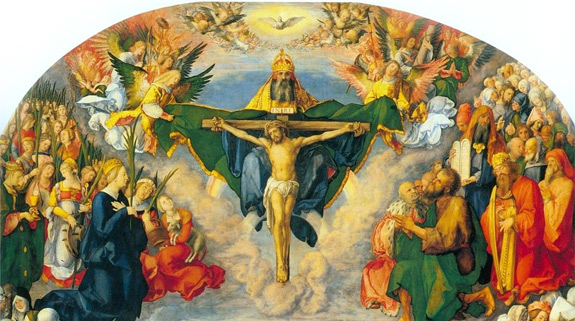A man gave his life over to Christ. Almost immediately, he was filled with a dread that God would call him to be a missionary in Africa. The fear consumed him to the point that it threatened to make him abandon his new found faith. But, in prayer, he felt assured that God would not put him in Africa without first putting Africa in his heart. With time, the man not only stopped fearing that God would send him to Africa, he began desiring to spread God's word there. He did eventually decide to go to Africa as a Christian missionary and was later martyred there. God kept his promise. He first planted the desire in the man's heart and then equipped him to serve in the missions event to the point of giving his life.
Today, we celebrate two of the great missionaries of our faith, Saints Peter and Paul.
Saint Peter was one of the original twelve apostles called by Jesus. Because of his profession of faith in Jesus as the Messiah and Savior of the World, Peter was called by Jesus to be the rock on which he would build his Church. Since that day, a pope has served as the successor to Peter and as the visible sign of the unity of the Church.
Saint Paul, on the other hand, was not one of the original apostles. In fact, in the days following Pentecost, he sought to crush the fledgling Church through an intense persecution which culminated with the stoning of Saint Stephen, the first to give his life for Christ. On the way to the city of Damascus, Saint Paul would be overwhelmed by a vision of the Risen Lord and converted from a persecutor of the Church to one of its most fervent missionaries. Though he wasn't one of the original twelve apostles, we call Saint Paul an apostle, nonetheless, because of his experience of the Risen Lord. He would be the Church's first theologian helping to formulate the basics of the new Christian faith and spreading that faith throughout much of the Greek speaking world.
God gave great success to the missionary work of Saints Peter and Paul. But, like the man in our story, neither of them was ready to spread the word from day one. Rather, each needed to spend time with the Lord before setting out to preach to others. Saint Peter spent three years following Jesus and learning from him up to the time of Jesus' death. Then, Peter sat at Jesus' feet after the resurrection, as we read in today's gospel when Jesus called Peter to tend his lambs. Saint Paul, likewise, spent three years praying and reflecting in the deserts of Arabia before finally meeting with Peter in Jerusalem, as we read in the second reading, and setting out on his missionary journeys around Asia Minor and eventually to Rome.
Like the man in our story, Jesus placed a burning love into the hearts of Saints Peter and Paul which expressed itself in a desire to spread the word of Jesus' death and resurrection. Because Saints Peter and Paul desired nothing else than to be faithful to their master, they would eventually give the ultimate witness to their faith by both being martyred in Rome. Saint Peter would be crucified upside down, and Saint Paul would be beheaded.
Today, in this place, Jesus is asking each of us if we love him. And, if we do love him, will we feed and tend his sheep? And, if we will tend his sheep, are we willing to go where we'd rather not go? Are we willing to follow Jesus to where the poor are? Are we willing to follow Jesus to where the hungry beg for bread? Are we willing to follow Jesus to where the sick are seeking treatment? Are we willing to stretch out our hands to tend Jesus' lambs wherever they may wander?
Jesus understands if we find his questions unsettling or even disturbing. Jesus understands if we hesitate or if we aren't ready to answer. Jesus even understands if our answer to him is "not yet". It very often takes time for us to understand what God wants of us. And, it takes even longer for us to be equipped by God with what we need for the mission. Jesus is a gentle master. He will place within our heart a desire for whatever mission he is calling us to. He will work on us until our fear gives way to love and our love shows itself in service to Jesus' sheep.
In every age, God has provided us, his sheep, with women and men of faith who witness powerfully to his love. It began with Saints Peter and Paul. The task now falls to each of us. In this place Jesus invites us to a meal and asks each of us if we do indeed love him and will serve him. If we are not ready to answer yet, we must pray that God will place in our heart a desire to serve him and the opportunity to know his will for us. That is a prayer that God will certainly answer. We will be both surprised and delighted by where our "yes" to him will take us.










